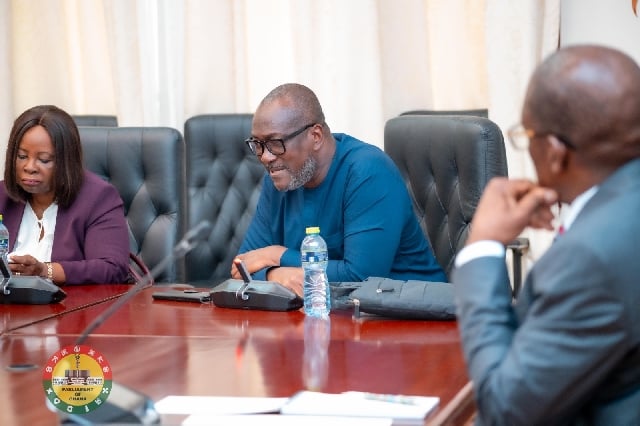The Speaker of Ghana’s Parliament, Rt. Hon. Alban Bagbin, has emphasized the urgent need for constitutional reforms that are tailored to Ghana’s unique socio-political landscape. Speaking during a consultative meeting with the Constitutional Review Committee, he cautioned against simply transplanting foreign governance models onto Ghana’s existing systems, arguing that such an approach often exacerbates rather than alleviates political challenges. He stressed that a robust constitution must be organically grown from the nation’s own values and realities, not imposed from external sources, ensuring its relevance and effectiveness in addressing Ghana’s specific needs. This call for contextually appropriate reforms lays the groundwork for a constitution that genuinely serves Ghana’s interests and strengthens its democratic foundations.
Speaker Bagbin’s address went beyond general principles to offer concrete proposals for structural reforms within the electoral and parliamentary systems. Central to his recommendations was the adoption of a proportional representation system, a shift he believes would foster a more inclusive and representative Parliament. This change, he argued, would enable a wider spectrum of voices to be heard, including those of the youth, women, persons with disabilities, and traditional leaders, groups currently underrepresented in the legislative body. Furthermore, he maintained that proportional representation would mitigate the excessive influence of partisan politics, thereby promoting a more collaborative and less polarized political environment. By diversifying representation and tempering partisan divides, such reforms aim to enhance the responsiveness and legitimacy of the Parliament.
Another key area highlighted by Speaker Bagbin was the crucial need to regulate political party financing. He underscored this as a vital measure for ensuring transparency and accountability within the political system, arguing that unregulated financing creates opportunities for corruption and undue influence, undermining the integrity of democratic processes. By establishing clear regulations and oversight mechanisms for political party funding, Ghana can take a significant step toward fostering a more equitable and transparent political landscape, minimizing the potential for financial improprieties and ensuring that the electoral playing field remains level. This focus on financial transparency demonstrates a commitment to strengthening the ethical foundations of Ghanaian democracy.
Beyond electoral and parliamentary reforms, Speaker Bagbin also advocated for the empowerment of key constitutional institutions, specifically highlighting the National Commission for Civic Education (NCCE). He emphasized the NCCE’s vital role in promoting civic awareness and fostering citizen participation in governance, arguing that a well-informed and engaged citizenry is essential for a thriving democracy. By strengthening the NCCE’s capacity to educate and empower citizens, Ghana can cultivate a more participatory and informed democratic culture, where individuals understand their rights and responsibilities and actively contribute to the nation’s political life. This emphasis on civic education underscores the importance of an informed populace in a healthy democratic system.
The Chairman of the Constitutional Review Committee, Prof. H. Kwasi Prempeh, acknowledged the significance of Speaker Bagbin’s insights, recognizing the complexity and multifaceted nature of the constitutional reform process. He assured the Speaker that the committee would give due consideration to the proposals presented, emphasizing the committee’s commitment to developing a constitution that is both responsive to the evolving needs of Ghanaian society and inclusive of diverse perspectives. This commitment to careful consideration and inclusive dialogue signals a desire to create a constitution that truly reflects the will and aspirations of the Ghanaian people.
The engagement between Speaker Bagbin and the Constitutional Review Committee represents a crucial step in the ongoing dialogue about Ghana’s constitutional future. By addressing key issues such as electoral reforms, political financing, and the role of civic education, the discussions have laid the groundwork for a more robust and responsive constitutional framework. The emphasis on contextual relevance, inclusivity, and transparency throughout these consultations indicates a collective commitment to strengthening Ghana’s democracy and ensuring that its constitution serves as a foundation for continued progress and prosperity. The path towards constitutional reform is undoubtedly complex, but the commitment to open dialogue and thoughtful consideration bodes well for the shaping of a constitution that truly reflects the aspirations and needs of the Ghanaian people.


